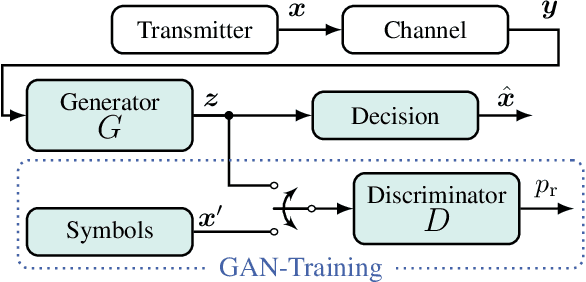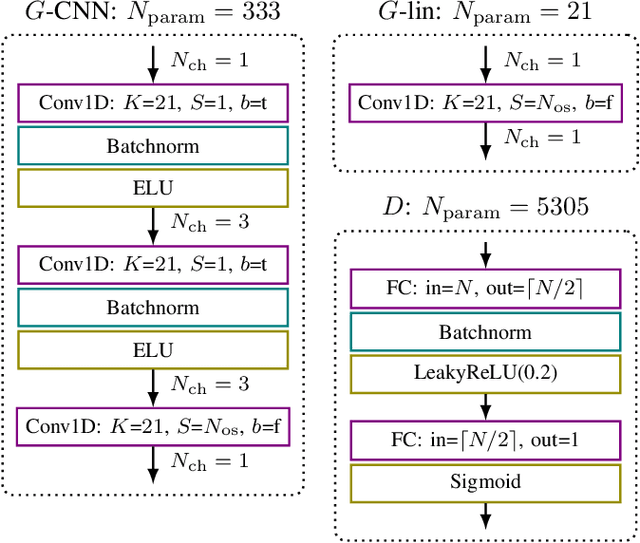Manuel Hoffmann
Blind and Channel-agnostic Equalization Using Adversarial Networks
Sep 15, 2022



Abstract:Due to the rapid development of autonomous driving, the Internet of Things and streaming services, modern communication systems have to cope with varying channel conditions and a steadily rising number of users and devices. This, and the still rising bandwidth demands, can only be met by intelligent network automation, which requires highly flexible and blind transceiver algorithms. To tackle those challenges, we propose a novel adaptive equalization scheme, which exploits the prosperous advances in deep learning by training an equalizer with an adversarial network. The learning is only based on the statistics of the transmit signal, so it is blind regarding the actual transmit symbols and agnostic to the channel model. The proposed approach is independent of the equalizer topology and enables the application of powerful neural network based equalizers. In this work, we prove this concept in simulations of different -- both linear and nonlinear -- transmission channels and demonstrate the capability of the proposed blind learning scheme to approach the performance of non-blind equalizers. Furthermore, we provide a theoretical perspective and highlight the challenges of the approach.
 Add to Chrome
Add to Chrome Add to Firefox
Add to Firefox Add to Edge
Add to Edge